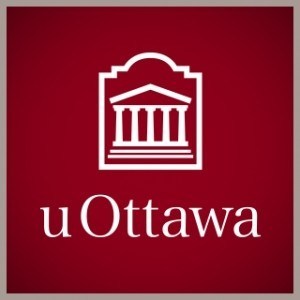Photos of university / #myucalgary
The Bachelor of Arts in Linguistics at the University of Calgary offers students a comprehensive exploration of human language, its structure, use, and global diversity. This undergraduate program is designed to develop a deep understanding of the scientific study of language, encompassing phonetics, phonology, morphology, syntax, semantics, and pragmatics. Students will examine how languages are structured and how they vary across different cultures and communities. The program emphasizes critical thinking, analytical skills, and empirical research methods, preparing graduates for diverse careers in linguistics, language teaching, computational linguistics, translation, and speech therapy, among others. Throughout their studies, students engage with both theoretical frameworks and practical applications of linguistics, including language acquisition, sociolinguistics, psycholinguistics, and language technology. The curriculum includes coursework in descriptive and theoretical linguistics, language documentation, fieldwork, and statistical analysis, equipping students with versatile skills applicable in academic, government, non-profit, and private sectors. The program also encourages interdisciplinary approaches, integrating insights from anthropology, psychology, computer science, and neuroscience to enrich students’ understanding of language. Students have access to state-of-the-art language labs and research facilities, as well as opportunities for participation in community language projects and internships. With a flexible structure, the degree allows students to tailor their education through elective courses and specialization options. Graduates of the program will be well-prepared to pursue graduate studies in linguistics, cognitive science, language pathology, or related fields, or to enter the workforce directly in roles that require expertise in language analysis, research, or communication. The University of Calgary is committed to fostering an inclusive academic environment that values linguistic diversity and promotes innovative research in the field of linguistics.
- Advanced Syntactic Analysis
- Advanced Phonological Analysis
- Introduction to Graduate Studies in Linguistics
Requirements
- A Master's degree in Linguistics, or a Master's degree in a related field with significant training in linguistics at the graduate level, normally including at least one graduate course in syntax and one graduate course in phonology.
- A Grade Point Average of at least 3.4 over the Master's program, or equivalent.
- For applicants required to provide proof of proficiency in English, a minimum IELTS score of 7.0; OR a minimum TOEFL score of 560 (paper-based), 83 (Internet-based test); AND a minimum score of 5.0 on the Test of Written English (TWE); OR a MELAB score of 80; OR a PTE score of 59.
- A statement of purpose specifying the applicant’s research interests and reasons for wishing to pursue a doctoral degree at the University of Calgary.
- A sample of previous work in linguistics or a related field (e.g., a seminar paper or Master of Arts thesis).
- Three reference letters.
Scholarships
- Graduate Research Scholarships (GRS)
- Graduate Assistantship Teaching (GA(T))
- Graduate Assistantship Research (GA(NT))
- Graduate Assistantship Trust (GATrust)
- Graduate Teaching Fellowship (GTF)
- Faculty of Graduate Studies Awards (FGS)
- Alberta Ingenuity Awards
- Social Sciences and Humanities Research Council Doctoral Fellowships
- Natural Sciences and Engineering Research Council Postgraduate Scholarships
The University of Calgary offers a comprehensive program in Linguistics designed to explore the scientific study of language. This program provides students with rigorous training in understanding the structure, meaning, and context of human language. Through a combination of theoretical and practical coursework, students examine various facets of linguistics, including phonetics, phonology, morphology, syntax, semantics, and pragmatics. The program emphasizes critical thinking and analytical skills, enabling students to analyze language data, formulate linguistic theories, and understand the cognitive and social aspects of language use. Additionally, students have opportunities to study language variation and change, language acquisition, and the significance of linguistics in technological applications such as natural language processing and computational linguistics. The curriculum often includes coursework in related fields like anthropology, psychology, and computer science to provide an interdisciplinary perspective. Practical experiences may include research projects, data collection, and analysis, preparing graduates for careers in academia, research, language teaching, translation, and roles in technology companies focused on language processing. The university also offers specializations and research opportunities for students interested in areas such as phonetics or sociolinguistics. The program aims to foster a deep understanding of human language and its role in society, equipping students with skills applicable in diverse careers that require precise analytical abilities and cultural awareness.




